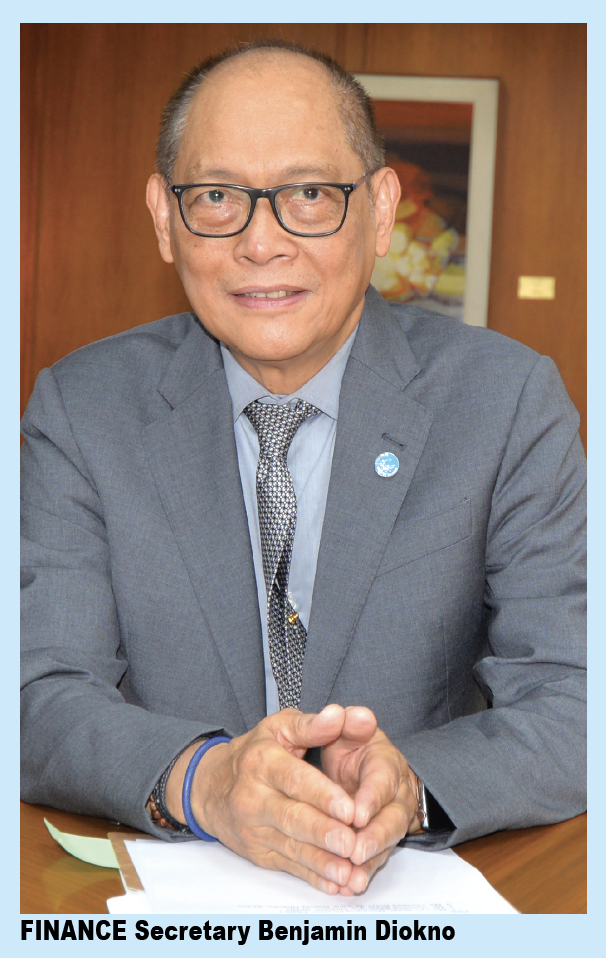On June 30, 2023, Ferdinand “Bongbong” Romualdez Marcos Jr. completes his first year as the 17th president of the Philippines, the 12th largest nation on earth in terms of population.
Considering the challenges and the perfect storm of—global economic slowdown amid geopolitical tensions, record prices of food and energy, and the Russia-Ukraine war –June 30, 2022-June 30, 2023 has been marvelous for BBM.
Our economy is on even keel, posting its best ever growth in 46 years of 7.6% in 2022 and a robust 6.4% in the first quarter.
In the whole of 2023, the economy is projected to grow by 6% and during 2024 til the end of BBM’s presidency in 2028, will straddle between 6.5% and 8% in growth.
These projections could mean average economic growth during BBM’s six years of 7%.
From end-2022 GDP or value of economic production of P22,023 billion, GDP would be P27,308 billion (P27.3 trillion), meaning the economy would have expanded by 25%.
Assuming a population of 121 million by mid-2028, a P27-trillion GDP would mean per capita GDP of P225,685 which divided by the current P55 to $1 rate is $4,103 per capita income, an almost $500 ($498) increase from the end-2022 per capita GDP of $3,605. Per World Bank, a $4,100 per capita income is lower middle income, but middle income just the same.
We can be high middle income if the peso-dollar rate were back to P50 to $1 by 2028; so P225,308 would be $4,506. Plus if we could reduce the annual population growth rate of 1.3%.
A return to P50 to $1 is possible with higher foreign investments (from the current $9 billion a year), a huge jump in exports (from $78.98 billion per year), and an even more dramatic rise in OFW remittances and BPO earnings (from $60 billion combined).
Of course, if BBM’s ambitious P9-trillion six-year infra program is completed, that will boost tremendously economic production. And poverty could be licked, from 21% of the population to just 6% by 2028.
The economy has been fairly managed, thanks to the stewardship of his economic team led by Finance Secretary Benjamin E. Diokno.
A pro-people, reform-minded public servant, Ben Diokno has done more good to economy and the Filipino people than any official before him has had.
As Bangko Sentral ng Pilipinas governor from March 4, 2019 to June 30, 2022, Diokno unleased into the economy P2.3 trillion of liquidity at the height of the worst pandemic of the century.
Under his leadership, the BSP was among the first to respond to the pandemic and deploy decisive measures to cushion the adverse impact of the pandemic and pave the road to recovery.
Ben put cash in the hands of cash-strapped consumers hit by COVID and invigorated the banking system. He also lent more than P470 billion to the national government for COVID support funds; it has been fully paid.
At BSP, Ben moved aggressively for financial inclusion thru digitalization. This year, half of retail transactions must be digital (from 20% in 2020) and 70% of Filipinos must have a bank account, from 56% in 2021.
As BSP chief, Diokno was cited as the Best Central Bank governor—in Asia and in the world, a rare distinction.
As the budget secretary of President Duterte, Diokno coined the phrase “The Golden Age of Philippine Infrastructure”. He harnessed an unprecedented P4.5 trillion to build up the country’s infrastructure and modernize the economy.
As finance secretary of Marcos Jr., he is again banking on infrastructure to keep the Philippines’ robust growth trajectory.
About 192 priority infrastructure projects are to be undertaken in six years at a cost of P9 trillion, double Duterte’s P4.5 trillion.
Diokno was Budget chief under three presidents—Corazon Aquino (1986-1991, as undersecretary), Joseph Estrada (1998-January 2001, as secretary), and Duterte (2016-2019).
At DBM, Diokno pursued an expansionary fiscal policy to finance investments in human capital development and public infrastructure.
Ben is considered the Father of the VAT (value added tax). He is now working on imposing VAT on digital trade in goods and services.
VAT began in 1988, by EO. Several laws expanded VAT coverage. RA 9337 or the Reformed VAT (RVAT) raised VAT rate from 10% to 12%, in November 2005.
VAT collections have exceeded P800 billion per year; leakage is high, 60%, because of exemptions. Diokno wants to plug the leakage.
As BBM’s Finance secretary, Diokno seeks to rally the economic team to achieve three broad development goals by 2028: reduce the deficit-to-GDP ratio to pre-pandemic rates, bring down poverty incidence to single-digit, and achieve upper-middle-income economy status by the end of the BBM administration.
Diokno seeks to go beyond headline economic expansion and achieve a brand of inclusive and sustainable growth with equity.
Ben’s headache is the reform of the so-called MUP (military and uniformed personnel) pension which needs P11 trillion immediately to pay just 150,000 Filipinos, police and military retirees.

Imagine that only 150,000 people must get half of GDP (P11 trillion is half of P22 trillion) so they can live a life of comfort and ease till they die and their spouses and kids die.
And the rest of us, 50 million workers are not supposed to complain because we are not allowed to. What gall!
Every sitting president since Cory has been threatened with a coup. Marcos Sr was ousted by a single coup. Cory endured 9 coup attempts. Erap was fallen by a coup. Gloria Arroyo defeated two coup attempts.
Fidel Ramos and Duterte? Zero coup. They gave the current MUP pension benefits.
— Tony Lopez
